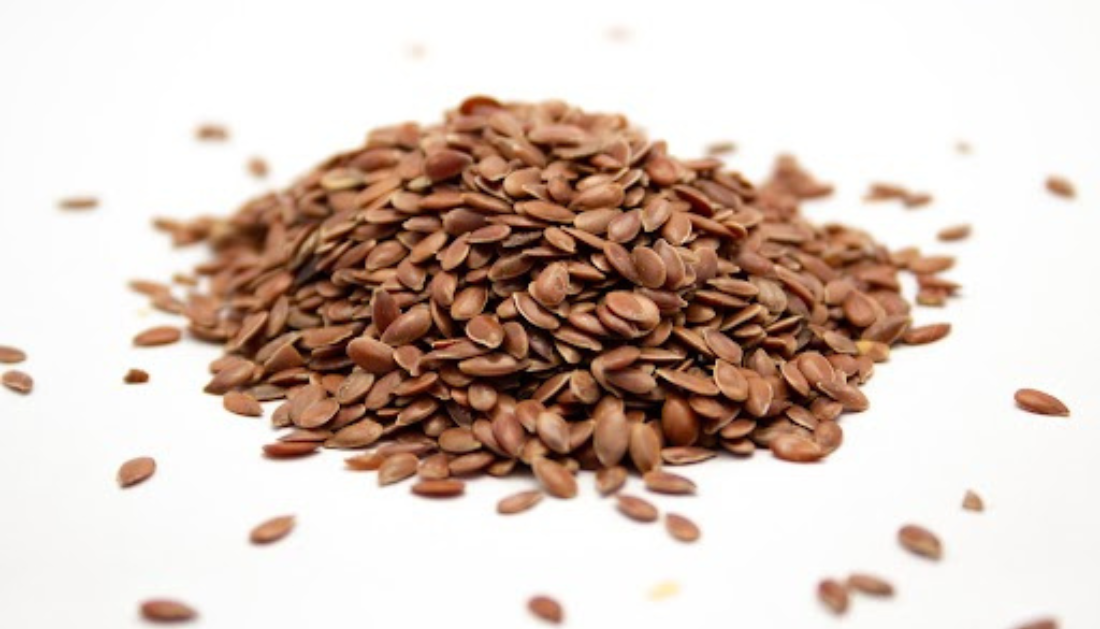

According to a new study, the human gut microbiota may play a role in breast health. Human health has long been known to be affected by lifestyle and diet. The study found that flaxseed components called lignans alter the interaction between gut microorganisms and the expression of mammary gland microRNAs (miRNAs). A subset of these miRNAs regulates the genes involved in breast cancer, including those that control cell proliferation and migration. The findings were reported in Microbiology Spectrum, a magazine of the American Society for Microbiology.
“The gastrointestinal microbiota plays an important role in modifying many components of our diet to impact human health,” said Jennifer Auchtung, Ph.D., Assistant Professor in the Food Science and Technology Department at the University of Nebraska – Lincoln, who coordinated the review of the paper. In this study, we discovered correlations between flaxseed-enriched diets, cecal microbiota composition, and miRNA profiles in the mammary gland, which regulate many pathways, including those involved in cancer development.” This exploratory finding lends support to additional research into the role of the microbiome in dietary approaches to reducing disease risk factors.
The researchers investigated the impact of flaxseed lignans on the microbiota of young female mice. Lignans, fiber-associated chemicals found in many foods and notably abundant in flaxseed, have been linked to lower breast cancer mortality in postmenopausal women. The researchers discovered that lignan components cause unique miRNA responses in the mammary gland. miRNAs are short, noncoding RNAs that regulate gene expression by binding to the 3′ untranslated region of target mRNAs.
The researchers fed flaxseed lignan components to female mice to determine whether gut cecal microbiota profiles are related to miRNA expression in the mammary gland. The cecum, the first part of the colon found in the right lower abdomen near the appendix, is thought to have a function in the formation of short-chain fatty acids and has been postulated to serve as a reservoir of anaerobic bacteria.
One flaxseed oil lignan requires microbial digestion to generate bioactive metabolites, which are small-molecule compounds formed during metabolism that influence physiology and illness – in this case, anticancer effects. The researchers discovered that the microbiota and mammary gland miRNA are connected, and that flaxseed lignans alter the relationship so that it is not cancer-causing.
“If these findings are confirmed, the microbiota becomes a new target to prevent breast cancer through dietary intervention.” – Elena M. Comelli, Ph.D., Associate Professor, Department of Nutritional Sciences and the Temerty Faculty of Medicine, University of Toronto, corresponding author on the paper
For more information: Cecal microbiota and mammary gland microRNA signatures are related and modifiable by dietary flaxseed with implications for breast cancer risk, Microbiology Spectrum, https://doi.org/10.1128/spectrum.02290-23
more recommended stories
 Nanoplastics in Brain Tissue and Neurological Risk
Nanoplastics in Brain Tissue and Neurological RiskKey Takeaways for HCPs Nanoplastics are.
 AI Predicts Chronic GVHD Risk After Stem Cell Transplant
AI Predicts Chronic GVHD Risk After Stem Cell TransplantKey Takeaways A new AI-driven tool,.
 Red Meat Consumption Linked to Higher Diabetes Odds
Red Meat Consumption Linked to Higher Diabetes OddsKey Takeaways Higher intake of total,.
 Pediatric Crohn’s Disease Microbial Signature Identified
Pediatric Crohn’s Disease Microbial Signature IdentifiedKey Points at a Glance NYU.
 Nanovaccine Design Boosts Immune Attack on HPV Tumors
Nanovaccine Design Boosts Immune Attack on HPV TumorsKey Highlights Reconfiguring peptide orientation significantly.
 High-Fat Diets Cause Damage to Metabolic Health
High-Fat Diets Cause Damage to Metabolic HealthKey Points Takeaways High-fat and ketogenic.
 Acute Ischemic Stroke: New Evidence for Neuroprotection
Acute Ischemic Stroke: New Evidence for NeuroprotectionKey Highlights A Phase III clinical.
 Statins Rarely Cause Side Effects, Large Trials Show
Statins Rarely Cause Side Effects, Large Trials ShowKey Points at a Glance Large.
 Can Too Many Antioxidants Harm Future Offspring?
Can Too Many Antioxidants Harm Future Offspring?Key Takeaways High-dose antioxidant supplementation in.
 Anxiety Reduction and Emotional Support on Social Media
Anxiety Reduction and Emotional Support on Social MediaKey Summary Anxiety commonly begins in.

Leave a Comment